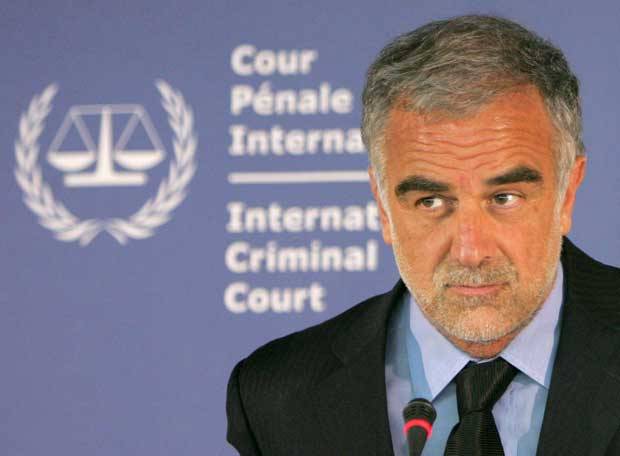He Loves Me, He Loves Me Not
The love affair between ordinary Kenyans and the International Criminal Court is finally blossoming into a full-fledged passionate romance.
After months of uncertainty about whether or not ICC Prosecutor Louis Moreno Ocampo could begin investigations on the culprits of the January 2008 post election violence that rocked the country and resulted in more than 1,130 people being killed, and over half a million internally displaced, there is finally a green light to proceed.
(Details on the abuses during post election violence can be found in Ballots to Bullets, a HRW report that documents how lives were lost due to organized political and ethnic violence.)
A team of experts from the ICC was in Kenya last week to pave the way for a visit next month by the ICC Prosecutor. They met with members of civil society organizations, human rights bodies, as well as the Attorney General of Kenya and other senior government leaders.
This is a major victory for ordinary Kenyan citizens and, most importantly, for the victims of post elections violence who feared that once again impunity would prevail over justice.
The majority of Kenyans however remain skeptical that even the ICC can make a lasting difference with their corrupt politicians who prefer to steal together and protect one another instead of looking out for the common ‘wananchi’ or ordinary ‘person’ in Kiswahili.
Besides, things are not that straightforward now that Mr. Ocampo can officially begin his investigations in Kenya. For starters, victims of post election violence and witnesses need to be protected.
There are indications in the media that thugs are threatening people if they dare to reveal something potentially incriminating for high-level officials, business people who financed armed gangs, and top security force members who abused their powers.
Fortunately, the ICC has offered to activate its own Witness Protection program to safeguard those coming forward with incriminating evidence. It is common knowledge that one of the toughest challenges the ICC would face was to convince communities to overcome their fears of reprisals and give evidence to the court.
Secondly, the question is whether the Government of Kenya, specifically the President and the Prime Mionister, will actually hand over those who will be named and shamed to the ICC. Even though Kenya is a signatory to the Rome Statute of the ICC, the desire to protect fellow politicians will remain a strong pull.
Just the other night I was reading an article by George B. N. Ayittey, a Distinguished Economist at American University and President of the Free Africa Foundation, entitled An African Solution.
He argues that compromises like ‘Governments of National Unity’, similar to the one that is now in place in Kenya, never really seem to work because they are imported, Western solutions and not African solutions to African problems. He says that Western jurisprudence focuses on punishing the guilty while in contrast, “the African notion of justice mandates restitution, forgiveness and reconciliation to restore national harmony.”
Professor Ayttey’s views are critical for understanding whether the ICC investigation in Kenya will indeed make a difference or not in the long term. On the one hand, the ICC is indeed modeled after a Western concept of justice but it is also true that ordinary Kenyans are fed up with impunity and that their leaders have so far been unable to address this issue in a satisfactory manner that restores social cohesion prior to the next round of elections in 2012.
So far all attempts to establish a special local tribunal to try perpetrators of post election violence have been slow to materialize and have been caught up in bickering over details on who will be appointed to spearhead this initiative and who will ultimately make the final decision regarding a guilty verdict.
Personally, I just wonder how the women I interviewed during post election violence feel about the process of justice either through the ICC or the local courts. Many had been raped or beaten during the mayhem and they were afraid to come forward due to reprisals.
Though not much will change in their lives if justice is indeed delivered once and for all, perhaps others will be spared such abuses in the next round of elections.


































i-Italy
Facebook
Google+
This work may not be reproduced, in whole or in part, without prior written permission.
Questo lavoro non può essere riprodotto, in tutto o in parte, senza permesso scritto.